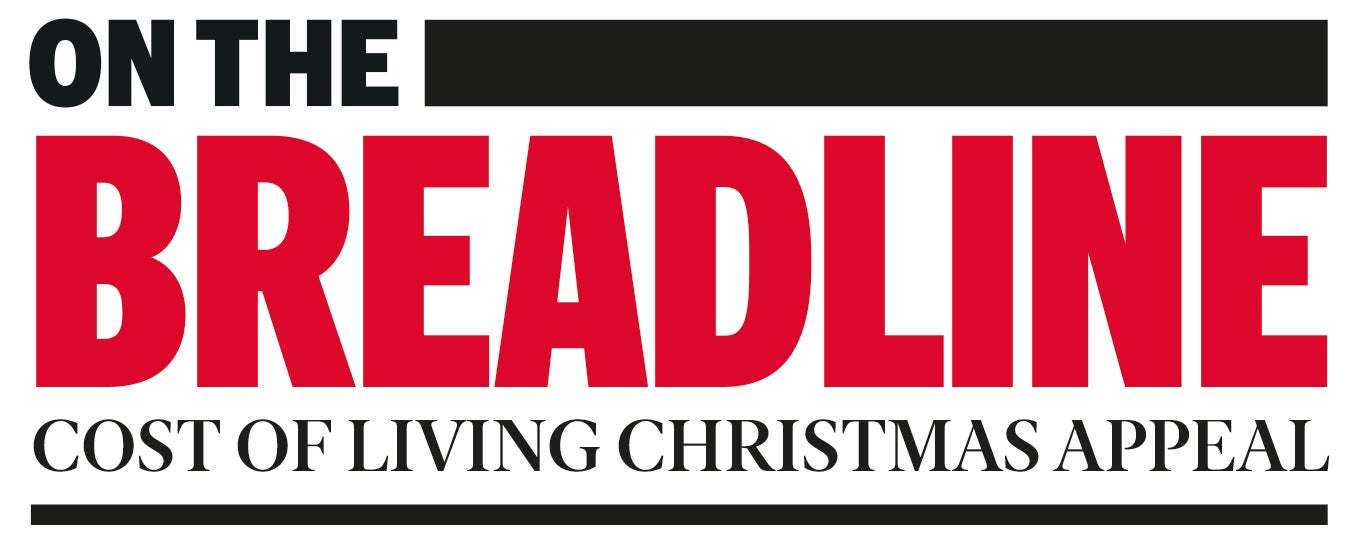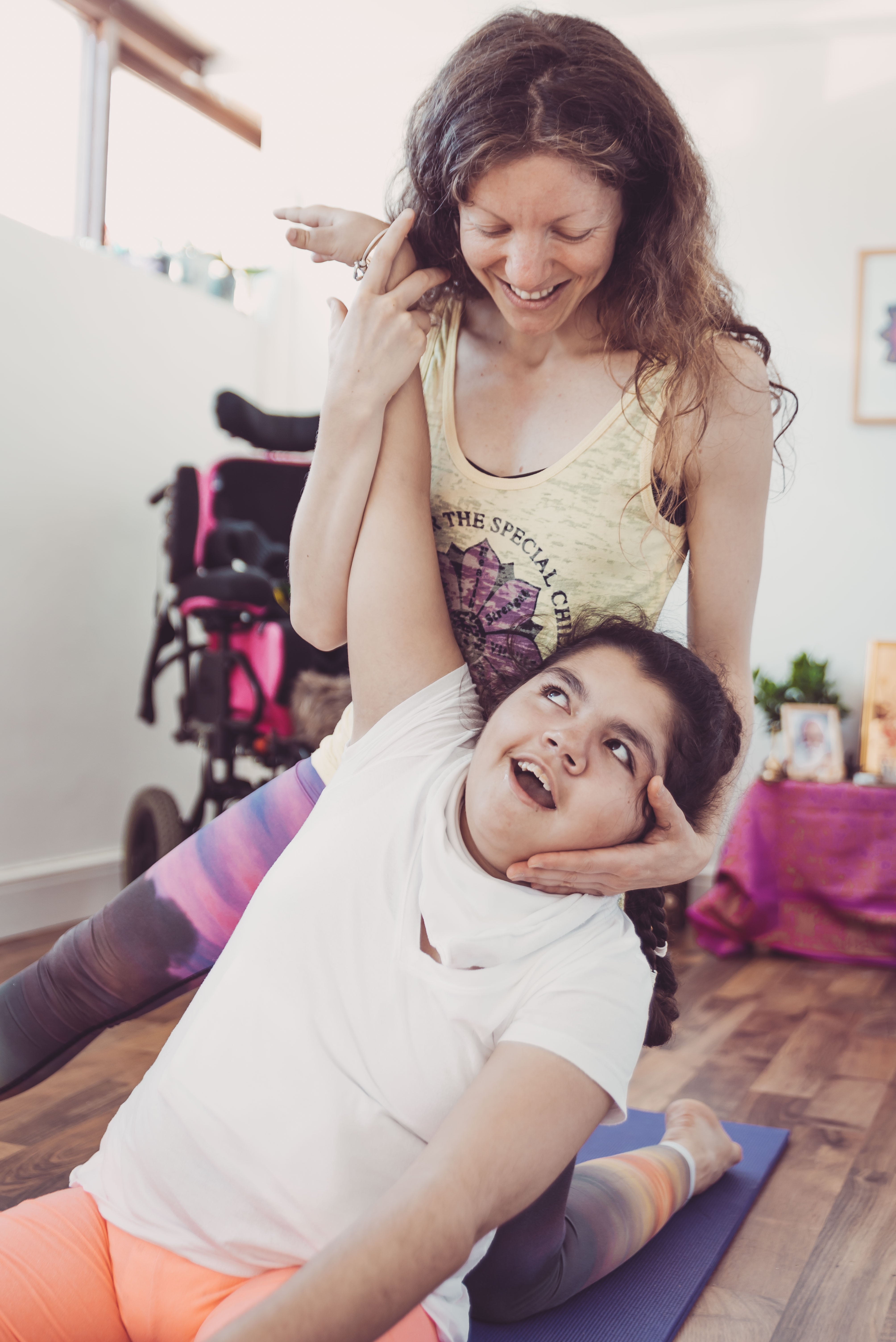Mother fears she won’t be able to afford electricity bill for disabled daughter’s medical equipment
On The Breadline: Specialist yoga centre backed by our Christmas campaign gives Emma and Tyler welcome respite

Emma Nicolaou likes to describe the north London home she shares with her seriously disabled 22-year-old daughter Tyler as their “castle”, but in reality it is more like a hospital ward filled with specialist life-saving equipment.
That equipment – from oxygen monitors to electric-powered tracks on the ceiling to move Tyler around – is becoming more and more expensive to run, leaving Emma terrified of the bills she has to pay and even more worried by talk of blackouts next year.
She used to get respite by spending her small amount of downtime working on her sewing machine or turning her hand to carpentry, but she has stopped for fear of increasing her already huge energy bills.

Emma, 47, said: “Tyler suffers from dystonia, a movement disorder, and has no mobility whatsoever. She is not even able to lift her hand to her mouth or scratch her head. She is in a wheelchair with a power pack and we’ve also got ceiling tracks in all rooms so I’m able to lift her up and down and do all the personal care. Tyler has respiratory issues and can’t eat orally, so everything goes through a stomach tube and the pump needs charging and she’s on monitors for oxygen through the night that need to be plugged in as well.”
She added: “I am scared about power cuts. I’m struggling to pay the bills and cutting down on things I do for me that keep me sane like my sewing machine or carpentry, but I’m too nervous to put my equipment on because of how much bills have gone up. Tyler also gets hot so I have to keep fans going summer and winter. My electric bills have already doubled.”
What little relief Emma gets comes from her weekly visit to the MahaDevi Yoga Centre in nearby Holloway Road, one of the organisations we will be seeking to fund in our On The Breadline Christmas appeal in partnership with Comic Relief.
Experts there work with Tyler whose movement disorder causes muscle spasms and contractions and can leave her body locked in a painful positions.

Centre director Ben Eydmann said they work with “a broad spectrum” of children and young adults with everything from cerebral palsy to mild learning disabilities. “The families we work with are at the lower end of the economic spectrum and can’t afford therapies privately where the cost is up to £80. They’re looking for a physical therapy that works emotionally and is affordable. Our sessions are either free or highly subsidised.”
The centre’s 15 staff work with 120 families and their three yoga studios are in constant use with people often referred by charity partners. “Each class is one-to-one and tailored to the needs of that child to improve their flexibility, strength, motor function, balance and body awareness.”
The centre is in high demand, added Ben. “We are full with a 26-person waiting list – we need a second building.”
Emma first discovered the centre when her daughter was a teenager. “When Tyler transferred from primary school into secondary school, she never received the physio she needed and so I tried to find a physio to help her,” she said. “Everything was too expensive or inaccessible but three years later, one parent suggested yoga.”
The benefits, Emma discovered, are mental as well as physical. “Since the pandemic Tyler’s dystonia has got worse in the sense that she is anxious about large crowds and this centre is the only outside place she’s comfortable with.”
Emma feels the benefits, too. “It’s such a calm space and when I come here, everything I’m stressing about just leaves me. I’m not saying you don’t pick it up again when you head out the door, but when I’m in there it does wonders for me.”


